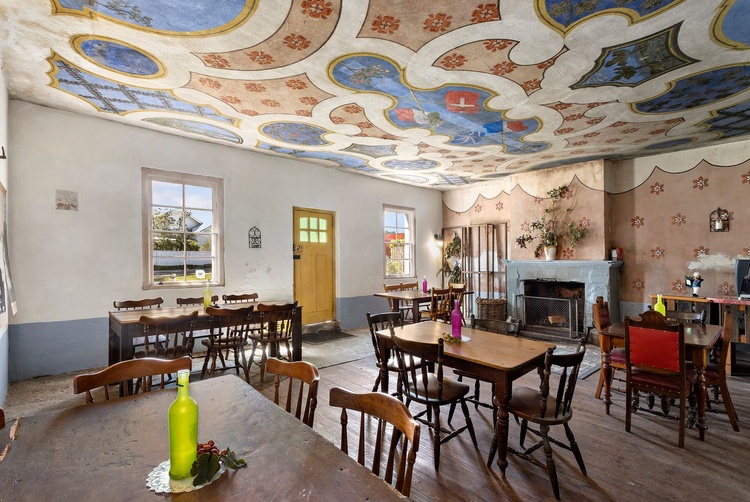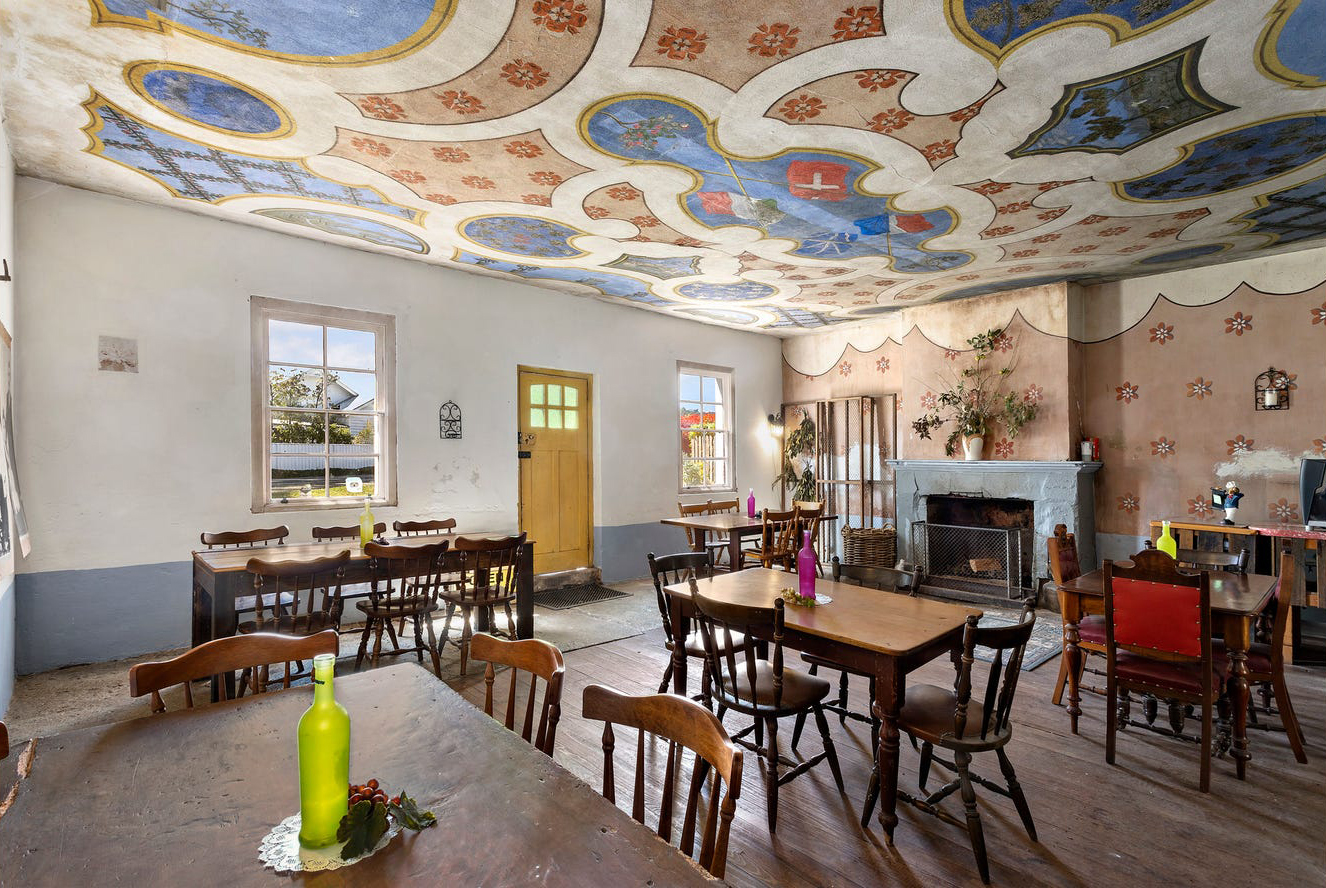The macaroni factory, founded by political exiles Pietro and Giacomo Lucini in 1859, was recently purchased by Jennie Wilmoth and Jenni Draper in order to “breathe new life into a piece of Italian history that holds such incredible value”.
In 1834, the Lucini brothers were forced to leave their hometown of Intra, in the region of Piedmont, after the insurrection in Genoa and a failed first attempt at unifying Italy.
The pair were part of Young Italy, a group founded by Giuseppe Mazzini, and they supported the idea of a republic that included all the territories of the peninsula.
When the revolt failed, the group split and members fled to all corners of the globe.
Garibaldi fled to South America, and the Lucini brothers found themselves in Australia.
It did not take the pair long to find their new fortune – they founded the innovative pasta factory in Hepburn Springs, catering to the many miners attracted by the gold rush in the area.
In the meantime, the continuous uprisings in Italy were finally successful, and the brothers were invited home to enjoy the freedom they had fought for.
“By then, they were the ‘kings’ of Daylesford,” Wilmoth said.
“They were rich and were respected by their neighbours, so they decided to never go back.”
Wilmoth and Draper, who have previous experience in the fields of design and finance, were drawn to both the history of the building and the paintings housed within it.
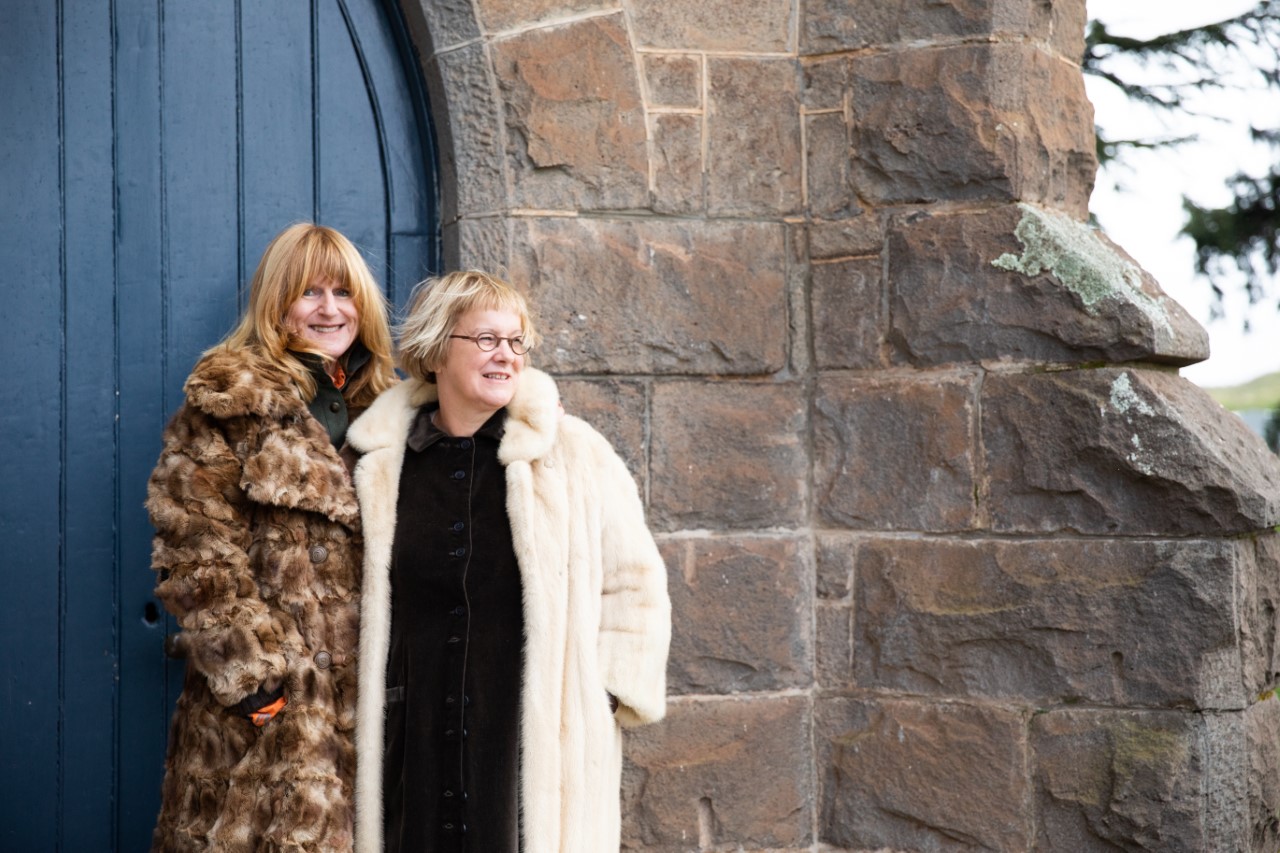
Jennie Wilmoth (left) and Jenni Draper
The paintings include landscapes of Northern Italy, a woman wearing a patriot’s cap chained to a wall- an allusion to Giuseppe Verdi’s opera II Trovatore – and flags that trace the history of unification in Italy.
“We’ve always felt an inexplicable bond with the Bel Paese,” Wilmoth continued.
“When I was 20 years old, I travelled from San Francisco to New York, reaching London and Paris as well.
“Everyone wanted to know what I thought of the Eiffel Tower or the Champs- Élysées, but all I could think about was Rome.
“It’s so wonderful to have found such an extraordinary piece of Italian history in Victoria.”
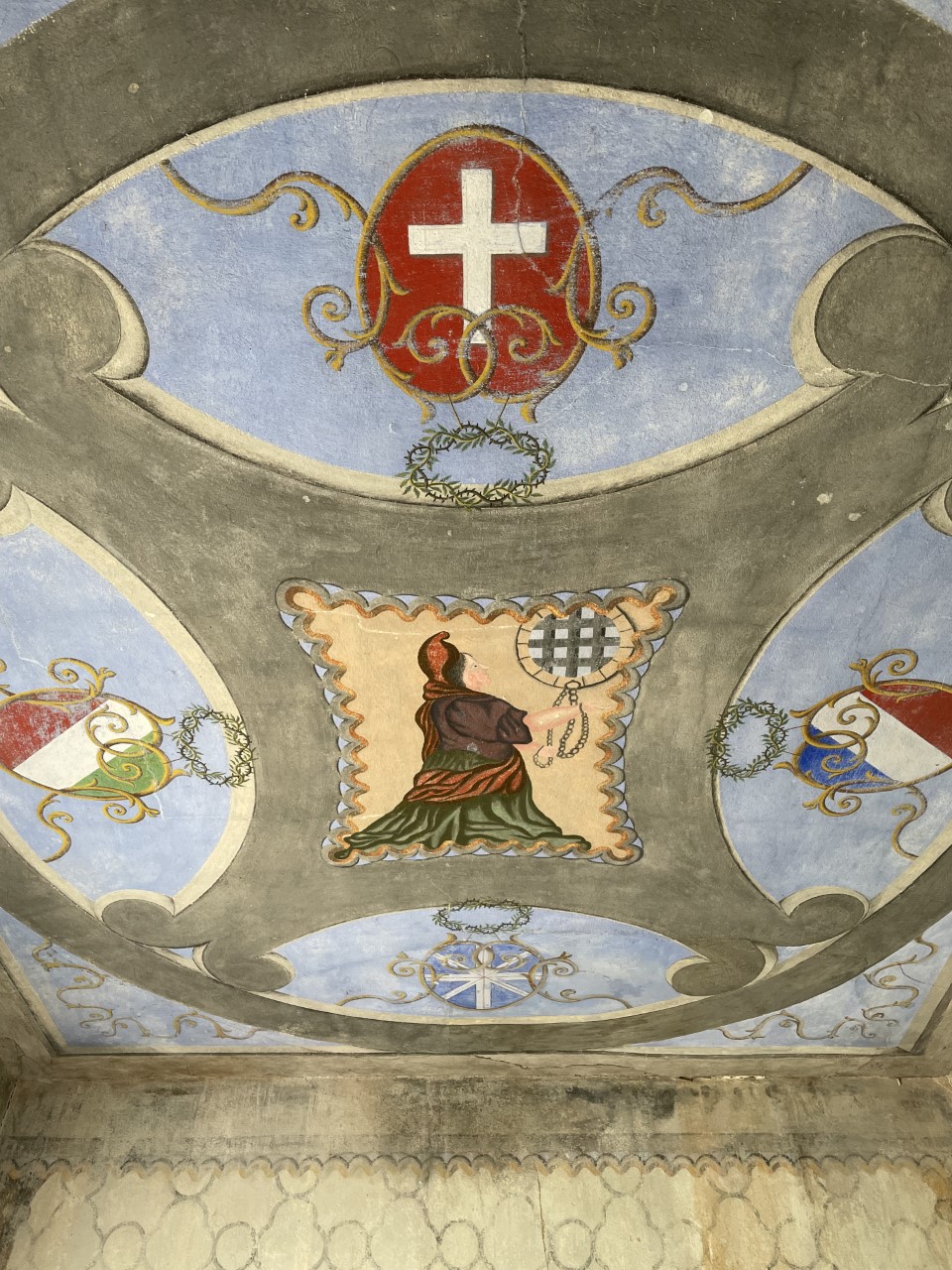
A historic painting in the building, surrounded by the flags of Italy, France, Switzerland and England
In the state’s goldfields, the Lucini brothers made their fortune by producing and selling pasta, salami and olive oil.
They gave rise to the Hepburn Democratic Club, located within the Macaroni Factory, where politics was discussed and funds were raised for the widows and orphans of patriots who died in Italy.
The factory was also home to the Italian Reading Room, tragically destroyed during the forest fires of 1906.
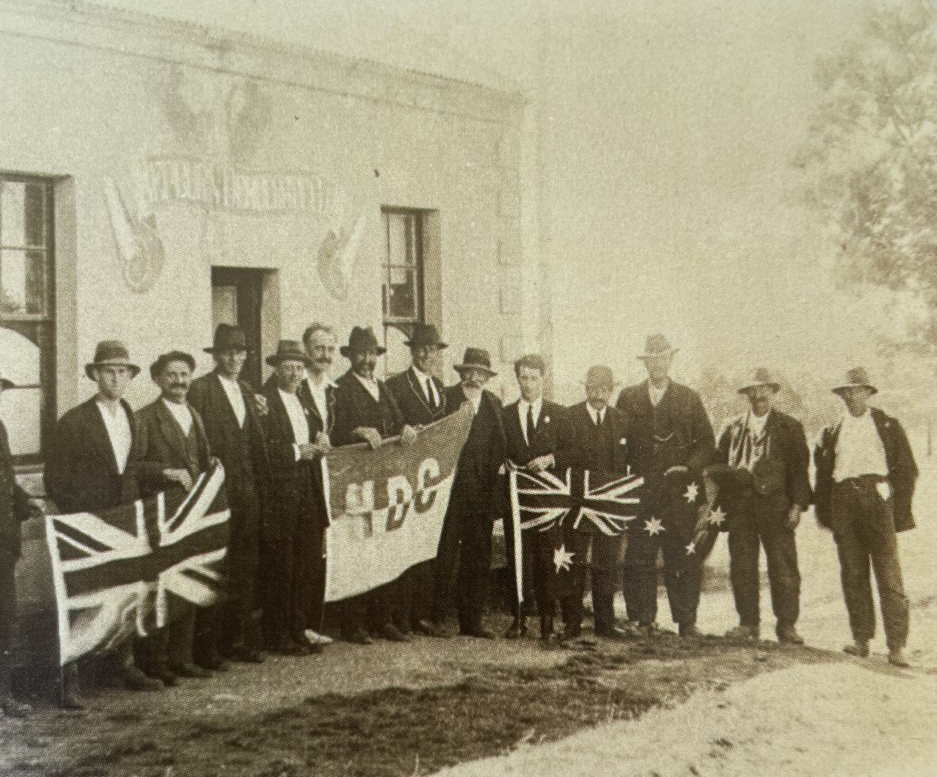
A photo of the 1920 Empire Day celebrations of the Hepburn Democratic Club, inaugurated by Pietro Lucini in 1880. (Photo: Ian Llewellyn)
Today, the building comprises thirteen rooms: two kitchens, a cellar, a sitting room and living areas on the upper floor.
Outside, one can admire the wonderful vineyards, and the orchard that includes pears, apple, fig and olive trees.
Wilmoth and Draper are already in the practice of renovating historic buildings, having recently finished their latest project - an 1869 bluestone church in Newlyn.
The pair have vowed “not to make radical changes” to the Macaroni Factory in order to preserve both the heritage and character of the edifice.
They do intend to make some practical changes, such as installing a heating system and updating the circa 1940s kitchen.
If given permission by Heritage Victoria, the pair plan to use part of the factory as a room for private events, where birthdays and anniversaries could be celebrated.
Future plans to turn the building into a quaint bed and breakfast have also been discussed.
Giacomo Lucini’s great-granddaughter, 76-year-old Maria Viola, lives in the house next door to the factory.
Though “heartbroken” that she was not able to gather the funds necessary to keep the factory in the family, she feels that “the family history is in good hands”.
“Maria will always be welcome and our door will always be open to her,” Wilmoth said.
“She can come and sit in the garden whenever she wants because the Macaroni Factory is a part of her.
“She knows the place intimately and we want to be able to continue to tell the stories she holds.
“We understand our responsibility as part of this community to ensure the longevity of the building.
“We want it to continue to shine for future generations.”

